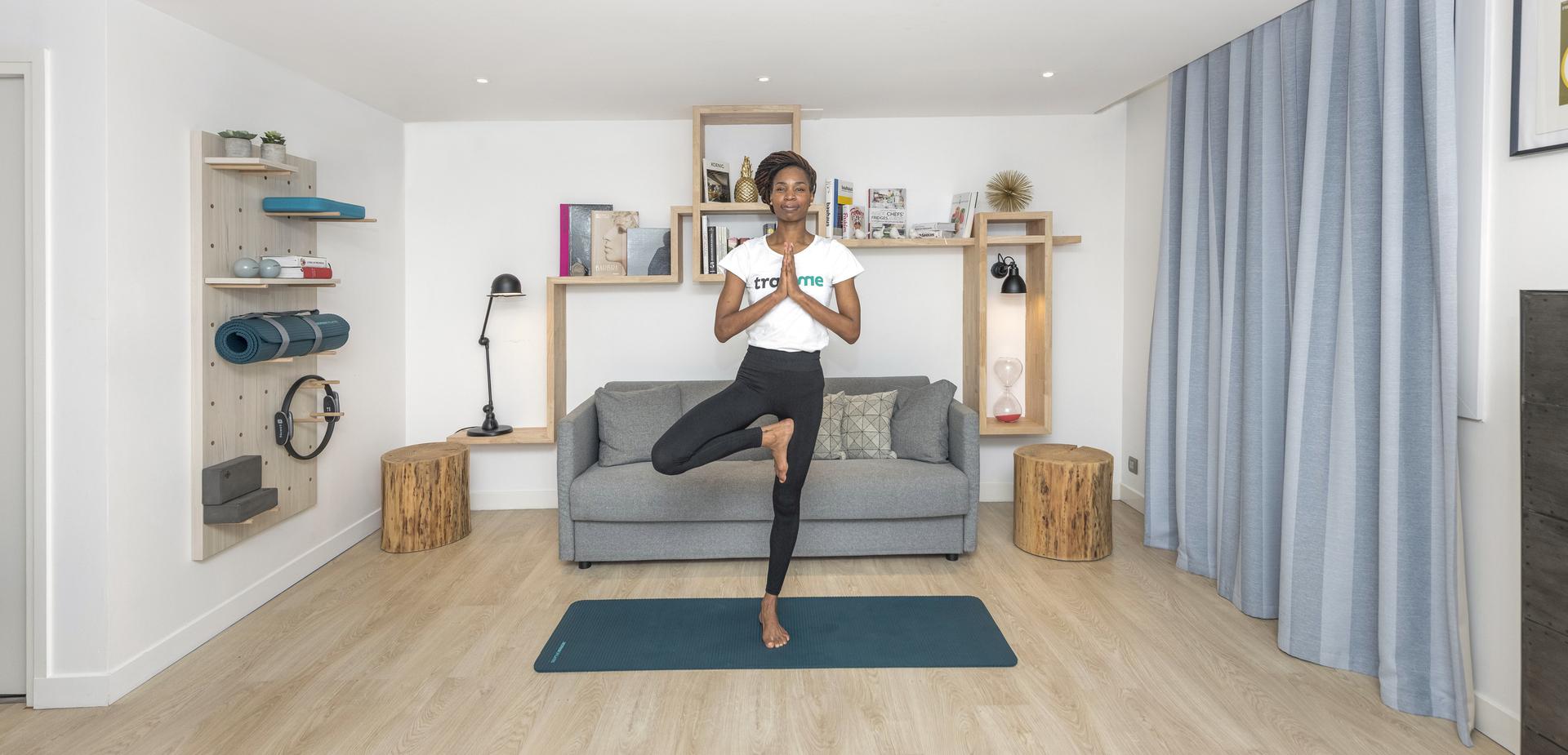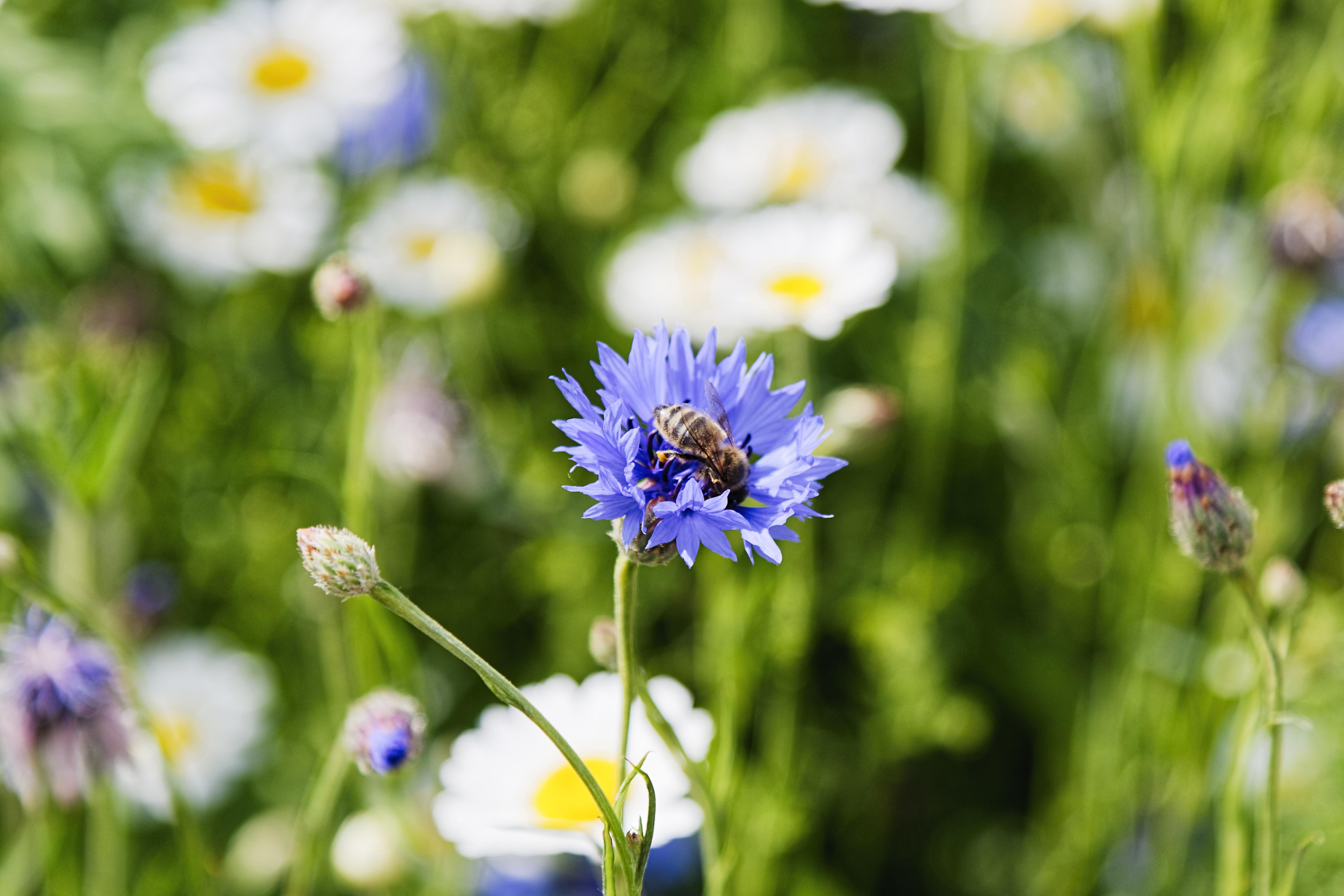
Our hotels show the way in promoting biodiversity
The 22nd of May is World Biodiversity Day! And in honour of the occasion, we look at some of the things our hotels are doing to promote biological diversity – zooming in on Rungis, near Paris, and Cornellà in Barcelona. If you have a little patch of garden, maybe this will inspire some nature activities you could do with your family? Like building a hotel for beneficial insects to make their home!
Protecting biodiversity means keeping nature in balance to preserve all the different organisms that live on our planet. It means all of us trying to minimise our environmental impact. We must (re)learn to live in harmony with the flora and fauna around us! And to preserve this wealth of biological diversity and defend our environment, there’s only one way forward – we need to behave in a more eco-responsible way, all year round. Here at Campanile, we’ve already taken steps down a greener, more ecological path. Curious to find out more? Here’s what our Cornellà and Rungis hotels are doing!
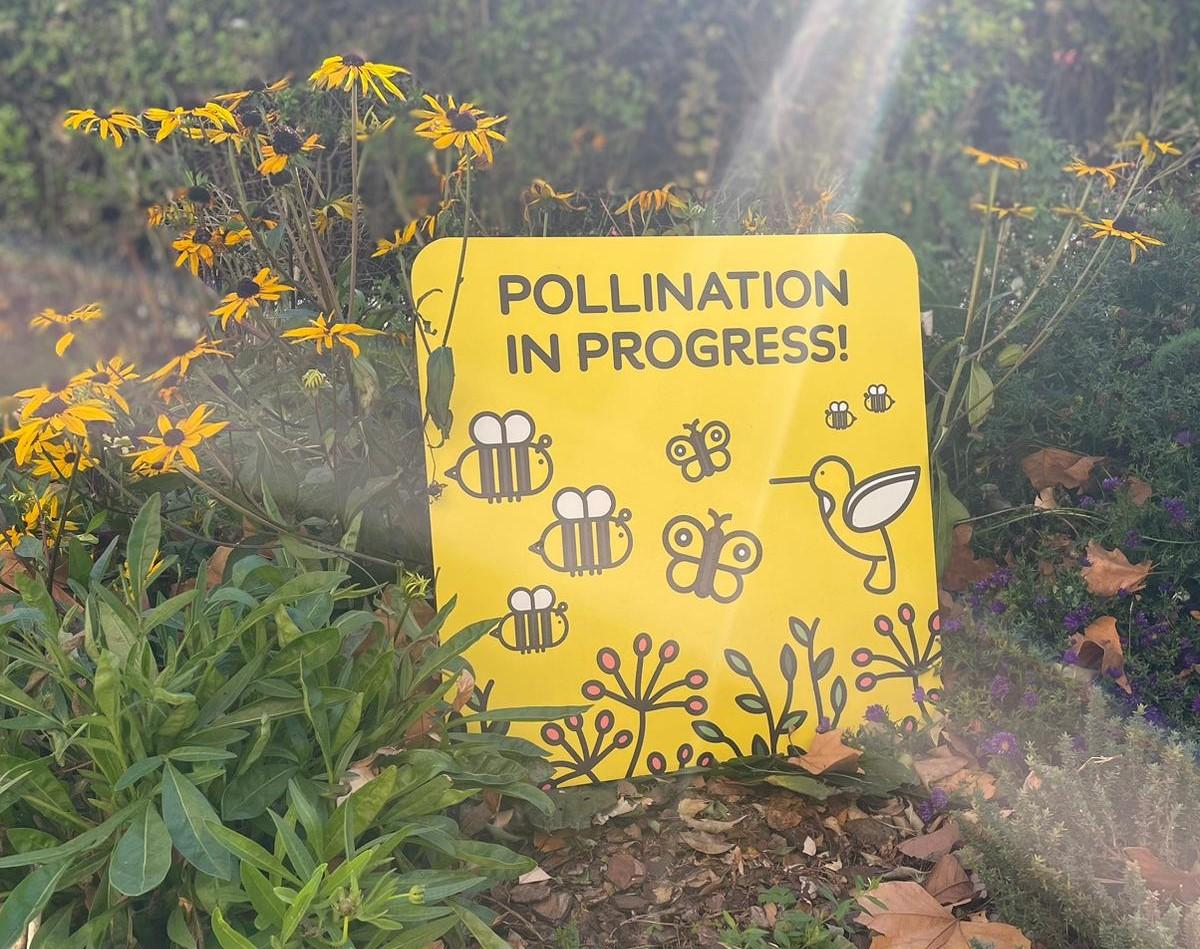
What are green-fingered staff at our Cornellà hotel doing? They’re cultivating a bee-friendly garden that’s a magnet for pollinating insects. With more than ten plant species that bloom at different times – including lavender, sage, and Buenos Aires verbena, the garden’s year-round supply of pollen and nectar make it a haven of pollination and fertilisation. The garden is also great for encouraging guests to think about ecosystems and how important they are. One hotel guest even participated in setting it up! What’s more, the garden is looked after by a local charity that works with disadvantaged people, so there’s also a compelling social dimension to this project.
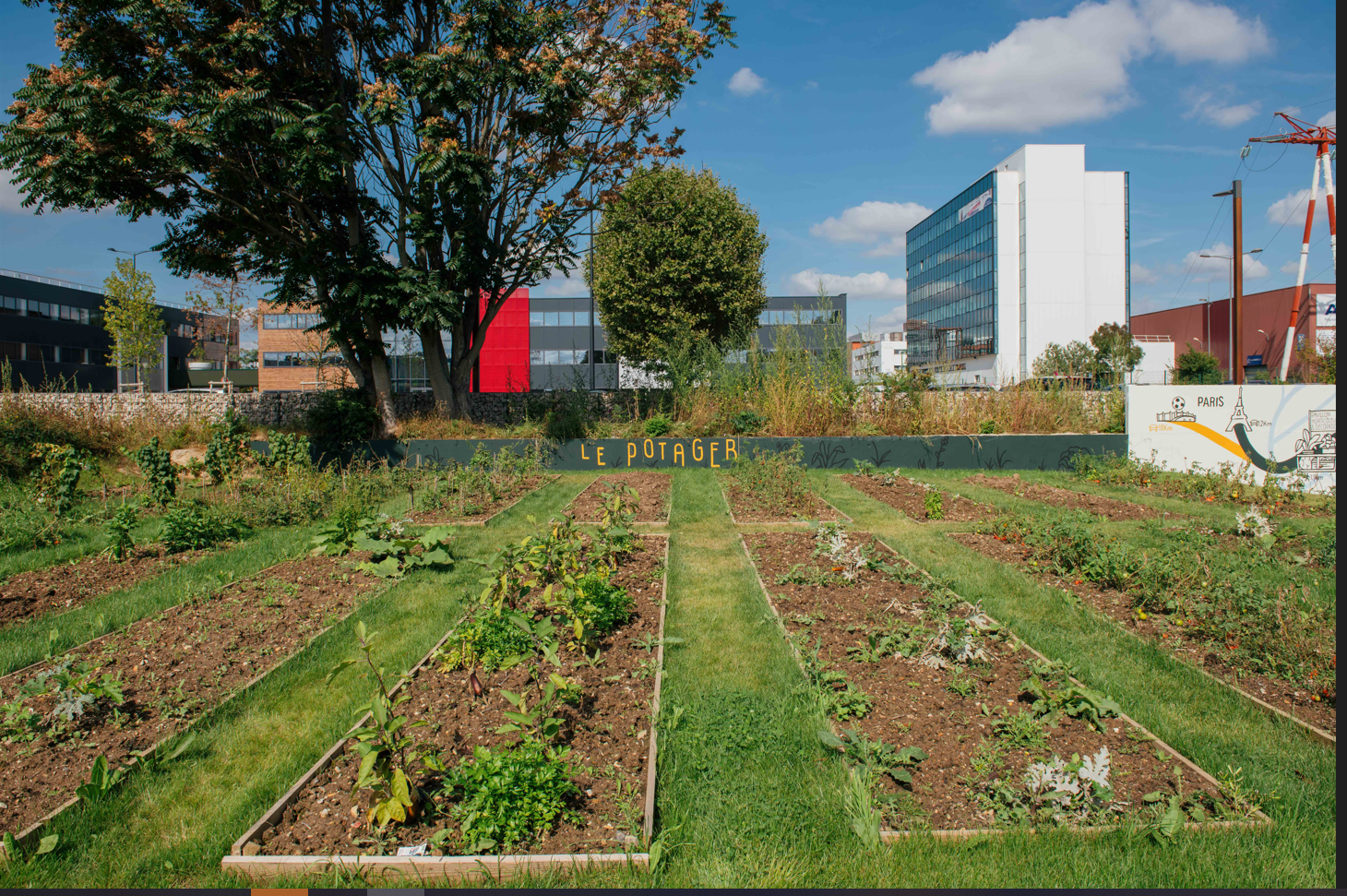
When guests eat at Campanile’s Rungis hotel, a significant proportion of the aromatic herbs, fruits and vegetables they’re served are grown in the hotel's own kitchen garden. When they’re ready to be harvested, our chefs prepare the most delicious recipes with them. This means guests are guaranteed food made with fresh, seasonal fruit and vegetables that are locally produced. This kitchen garden is also a wonderful way to foster biodiversity! And – waste not, want not – all the hotel's organic waste is composted, so the gardeners can use it to improve the soil with nutrients.
Staff here have even set up a bug hotel in the garden, providing shelter for beneficial insects throughout the year. These gardeners’ friends need somewhere to live too, where they’re safe from adverse weather, predators and even lawnmowers. In wintertime, the bug hotel provides refuge from the cold. And in spring, the insects lay their larvae there – many of which will happily gobble up garden pests like aphids. Ladybirds, earwigs, butterflies, lacewings and hoverflies all especially love this sanctuary!
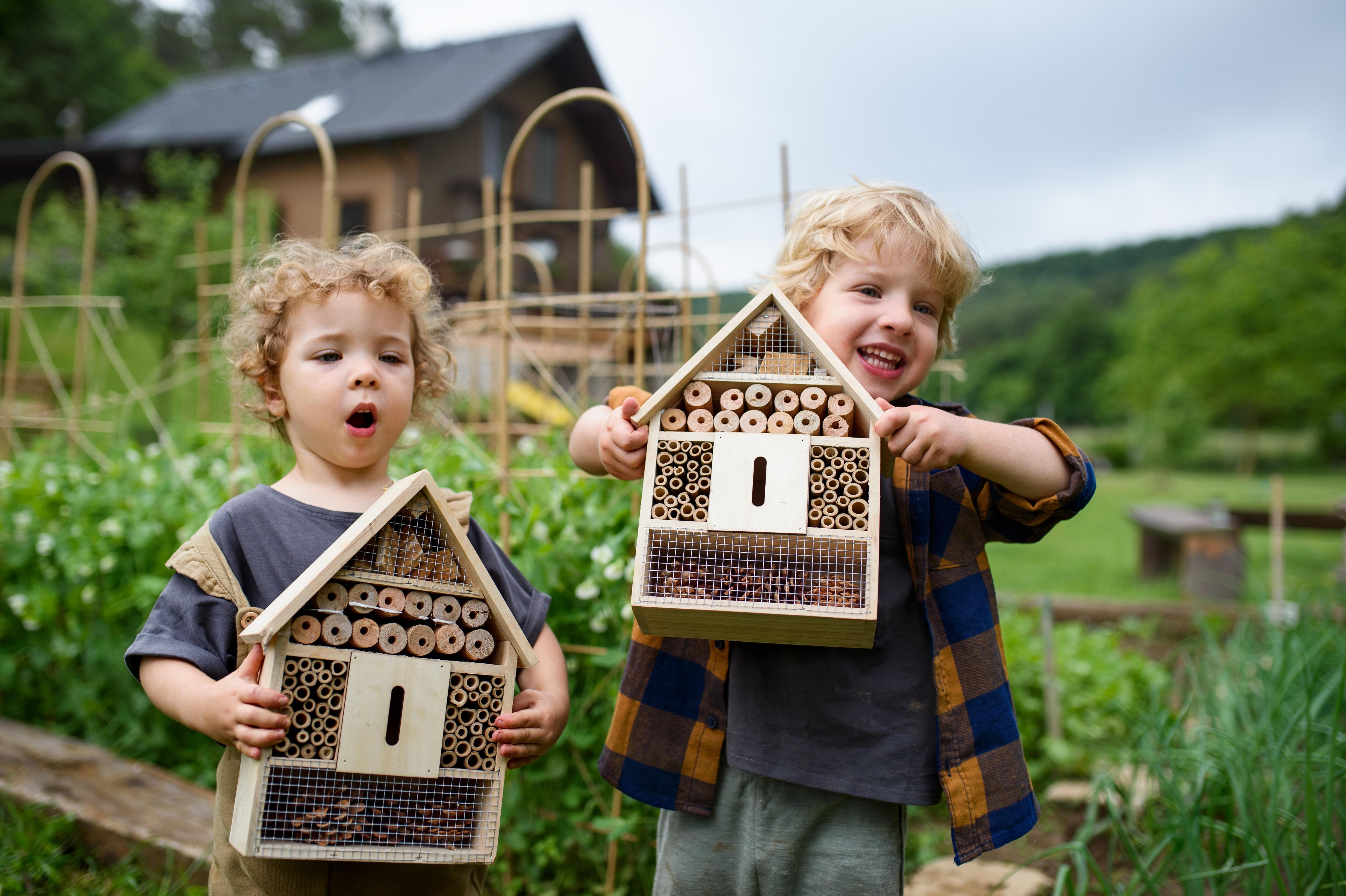
If you have a patch of garden available to you, why not build your own insect shelter? They generally take the form of a kind of “hut” constructed around a frame of untreated wood, such as a pile of pallets. Then you fill all the spaces with natural materials to create “rooms” for the insects.
You could build a wooden frame and fix horizontal and vertical planks of wood onto it, so you end up with lots of little compartments. Bear in mind that, depending on what materials you choose, you’ll attract different insects:
- Ladybirds are particularly fond of stacks of dry, dead wood
- Straw, sticks and pinecones attract lacewings
- Hollow stems, and holes drilled into bits of wood, are ideal spots for solitary bees to lay their eggs
- Broken plant pots make a lovely home for hoverflies
It’s also important to pick the right location for your bug hotel. Choose an undisturbed spot that’s sheltered from the wind, and keep it protected from rain. Put it facing south or southeast, so that your guests can enjoy the sunshine! This will also help them to breed.
Get some children involved in setting up your insect hotel. They’ll be happy to gather the materials you need to create the variety of "rooms", and will love watching the insects gradually move in. Try it and see!

.jpg)

